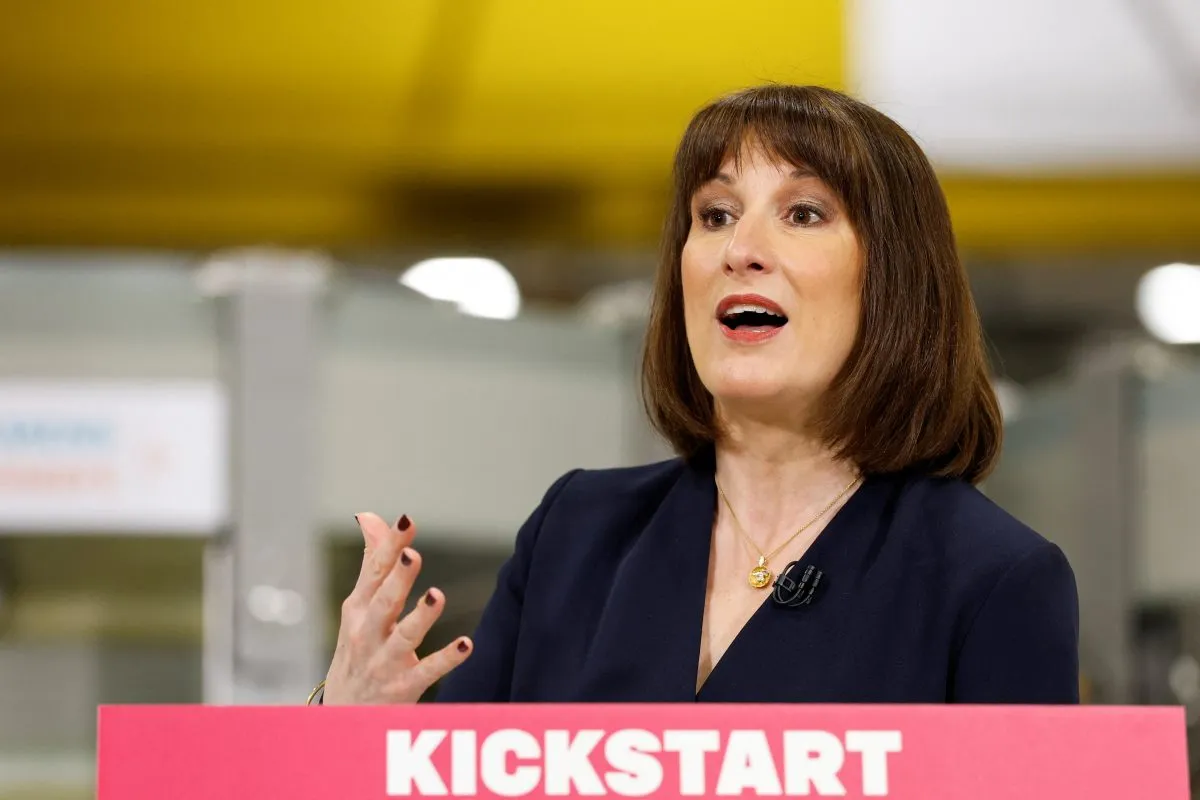Copyright cityam

Amidst market uncertainty caused by her delayed and vague budget “context” speech, Chancellor Rachel Reeves is now expected to introduce a raft of significant tax increases on income, property, and businesses to address a national debt she helped exacerbate, says Jamila Robertson This week, Chancellor Rachel Reeves delivered a speech to set the context for her upcoming budget, which sent the FTSE tumbling by 57 points and the pound falling to a seven-month low. Reeves’ upcoming Budget is a can she kicked down the road back in September, when 30-year gilts had reached their highest level since 1998. In her speech, 370 days after her last budget and a mind-boggling three weeks before her next, the Chancellor acknowledged that the delay had generated a lot of speculation. She thought the best way to contain it would be to provide “context” not clarity, about the taxes she would raise and whether she would maintain her party‘s manifesto pledge not to raise income tax. Instead of reflecting on the impact of her last budget, one that increased employers National Insurance Contributions (NICs), lowered the NICs threshold, increased minimum wage and removed business rates relief in one fell swoop, she blamed Brexit, “Tory austerity”, the £22bn black hole, Liz Truss, US tariffs, inflation, the global cost of government spending, UK debt, pressure to increase defence spending, other pressures such as welfare, poor productivity inherited from the last government and the chronic stop-go cycle in public investment. Reeves stressed the importance of reducing national debt, a debt she had exacerbated by increasing day-to-day spending by £33bn, capital spending by £145.7bn, and government borrowing by £28bn. So how will she undo this mess? Tax, tax, tax A ’leaked’ photo revealed that personal income tax thresholds will be reviewed (translation: frozen), despite promising in the last budget to maintain the Conservatives’ 2028 deadline. According to the OBR, extending the freeze on income tax thresholds will raise £38.6bn in 2029/30, which may prove too tempting for Reeves to resist. A 1-2p increase on income tax is also on the cards, which, depending on who she taxes, would raise up to £10bn. Unfortunately for the Chancellor, most revenue would be raised by increasing the tax on the basic rate (raising £8bn), as opposed to an increase on the additional rate (which would raise £230m). This may be why, in said speech, Reeves declared that “each of us must do our bit”. Other mooted taxes include a ‘settling-up fee’, which amounts to a 20 per cent exit tax on those attempting to escape this increasingly burdensome state, and a form of employers’ NICs, rumoured to be introduced on LLPs – meaning that GPs, of which we have too few, would be incentivised to work less, or leave. In a not-so-subtle briefing this week, Wes Streeting’s DHSC released a report revealing that most GP salaries exceed the Prime Minister’s, presumably to publicly shame them for earning and lay the groundwork for more politics of envy. However, businesses and entrepreneurs who might escape budget tax rises will be far too preoccupied by the damaging policies of the Renters’ Rights Act and Employment Rights Bill, which secure ‘rights’ from day one for employees and entitle tenants outside of their tenancy agreements to outstay their welcome. For homeowners not renting a property, the Chancellor is eyeing up two major taxes. The first, a mansion tax – the great undoing of many a shadow minister – would impose a 1 percent annual levy on the portion of a property’s value over £2m. This would mean a £2.5m property would face an annual charge of £5,000. The other would be to double Council Tax for all homes in bands G and H, taking a typical annual bill from £3,800 to £7,600 in band G and from £4,560 to £9,120 in band H. Instead of council tax reform, which would see 1991 council tax bands revalued, Reeves’ plans for stamp duty, like many of this government’s reforms, is the sticking-plaster politics they indefatigably condemned. Yet, the thing that is almost as awful as these many rumoured tax rises is that the Chancellor has made the markets, businesses and her beloved working people wait so long to know what the Budget will contain. Weeks of leaks, kite-flying, pitch-rolling, tormenting voters, businesses, investors and crippling markets with uncertainty – something Keir Starmer promised his government would avoid. By delaying the budget until almost Christmas and as feasibly close to parliament’s recess as possible, the Chancellor is like an employee, sending a difficult email moments before her out-of-office comes on, hoping that by the time she gets back to work, all of her problems will have gone away.



